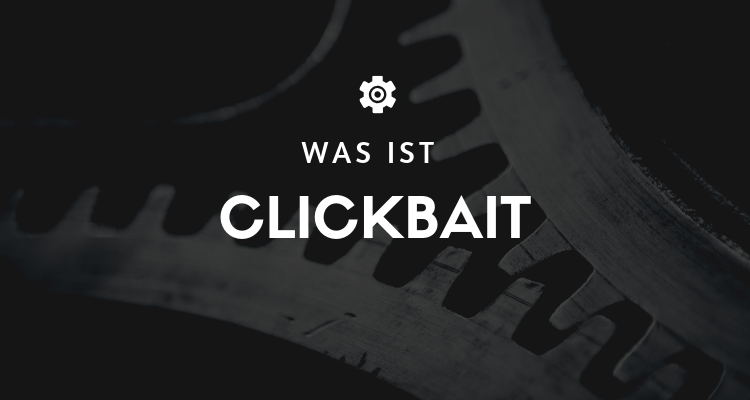What is clickbait?
Simply put Clickbait a content that intentionally exaggerates or misrepresents something in order to attract users to a particular website. Clickbait generally catches users with a quick, sensational headline - like "you won't believe it" or "you'll never guess what happened next". Ultimately, however, it then fails to deliver on the user's implicit expectations.
One of the most popular types of Clickbait-content is the production of "listicles". These are websites that aggregate content from other websites in order to attract a larger number of users to a website.
Clickbait-Articles typically run under 300 words and usually contain no original ideas or content. Instead, they are summaries of longer stories or embedded videos that can be found elsewhere and, upon inspection, do not necessarily match the corresponding headline or led.
Viele kleine Unternehmen und Marketingagenturen nutzen Clickbait because it provides a quick way to create webTraffic to generate - and can deliver results in the process. The subsequent increase in the Trafficgenerated by this content can phenomenally improve a website's search engine presence. In general, this is a win-win situation.
Whether this Traffic directly leads to higher conversion rates and an increase in sales is harder to say. But when companies overuse clickbaiting, it can often lead to negative consequences.
Why should you be careful when using clickbait for your business?
The problem is the excessive but ultimately unsustainable promises of Clickbait, so most of your potential customers will try to avoid them if possible. After all, no one likes to feel that they have been fooled or that their time has been wasted. So, if you find yourself publishing too often Clickbait work, your brand could become synonymous with questionable information or a waste of time.
More importantly, you could be giving yourself a leg up when it comes to SEO. Search engines like Google take a whole host of criteria into account in their algorithms when creating results pages for users - and one of those factors is the quality of web content. Every few months, Google releases a series of updates aimed at this, Clickbait search, duplicate content and send fake messages.
The sites associated with this low-quality content are subsequently penalized by moving further down the SERP's are pressed. Another factor that search engines take into account when Ranking of different websites is the bounce rate of a web page. If users click on a page, identify the content as useless and immediately "bounce" away from the page without clicking on another page, Google generally classifies this page as less valuable from the user's point of view.
The more users bounce from your meaningless content, the more your website suffers. Facebook has also been working against Clickbait has already taken steps. Last summer, the social media giant presented a new algorithm update, which Clickbait identifies posts posted by companies and then prevents those posts from appearing in users' news feeds.
With this in mind, it is worth thinking twice before you Clickbait host on your company website or share on social media. When used sparingly and creatively, it can have positive Traffic that could ultimately strengthen your online presence. This profile gain is accompanied by a number of indirect benefits.
But too much on Clickbait is also a surefire way to hurt your SEO, lose social media followers, and tarnish trust in your brand. Sometimes it pays not to jump on the bandwagon.
« Back to Glossary Index


